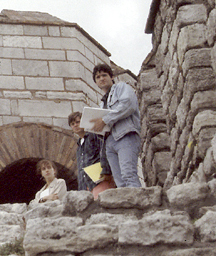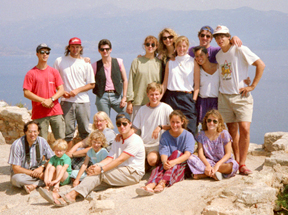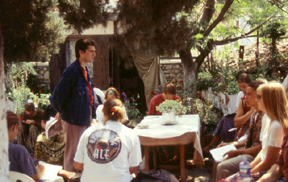|
Remembering
David Turner
David was
born on July 6, 1960. He was educated in New Zealand, the United States
and the United Kingdom, but he spent much his adult life in Greece,
affiliated with the British School at Athens, and teaching for Lake
Forest, Arcadia Center, and Elder-Hostel. David's interests were extensive.
Not only was he a Byzantine scholar, but he did extensive work on Bronze
Age studies, including work on Heinrich Schliemann. David also translated
many articles and archaeological guides.
|
||
|
None of this, of course, captures David's spirit. He was a gentle, giving person, deeply concerned about the people he taught and worked with. His strongly held religious beliefs, and the openness with which he approached and expressed them in his teaching of Orthodox theology, was particularly striking and influential for American students, who often view religion as a private matter. David was a person of deep convictions, which he would forcefully defend against all comers. Conversations and debates with David, whether at a monastery or a taverna, were events not to be missed. These were never mere exercises; one always knew that David was defending what mattered to him and was urgently seeking to convince others to agree. |
||
|
||
|
Of course, David also possessed a "piercingly biting" sense of humor, which could itself serve to instruct. When a class visiting Mistra was distracted by a group of cats, David picked one up and had it, in a Monte Python accent, continue his lecture. As the son of a Greek mother and British father, David lived in both worlds, and given his understanding of these different cultures, he was able to provide insights that helped others navigate the intersections between peoples and ideals. As a result, he prodded others to consider their own culture and their assumptions about human existence. David Turner
was an inspiration to a generation of students and faculty. His impact
on the Lake Forest College Program in Greece and Turkey was enormous,
and he will continue to influence students for years to come. He has
provided the guiding focus for the Byzantine course, and students will
still be able to hear David, through his handbook, which will remain
the key source for the course. |
||
|
||
|


